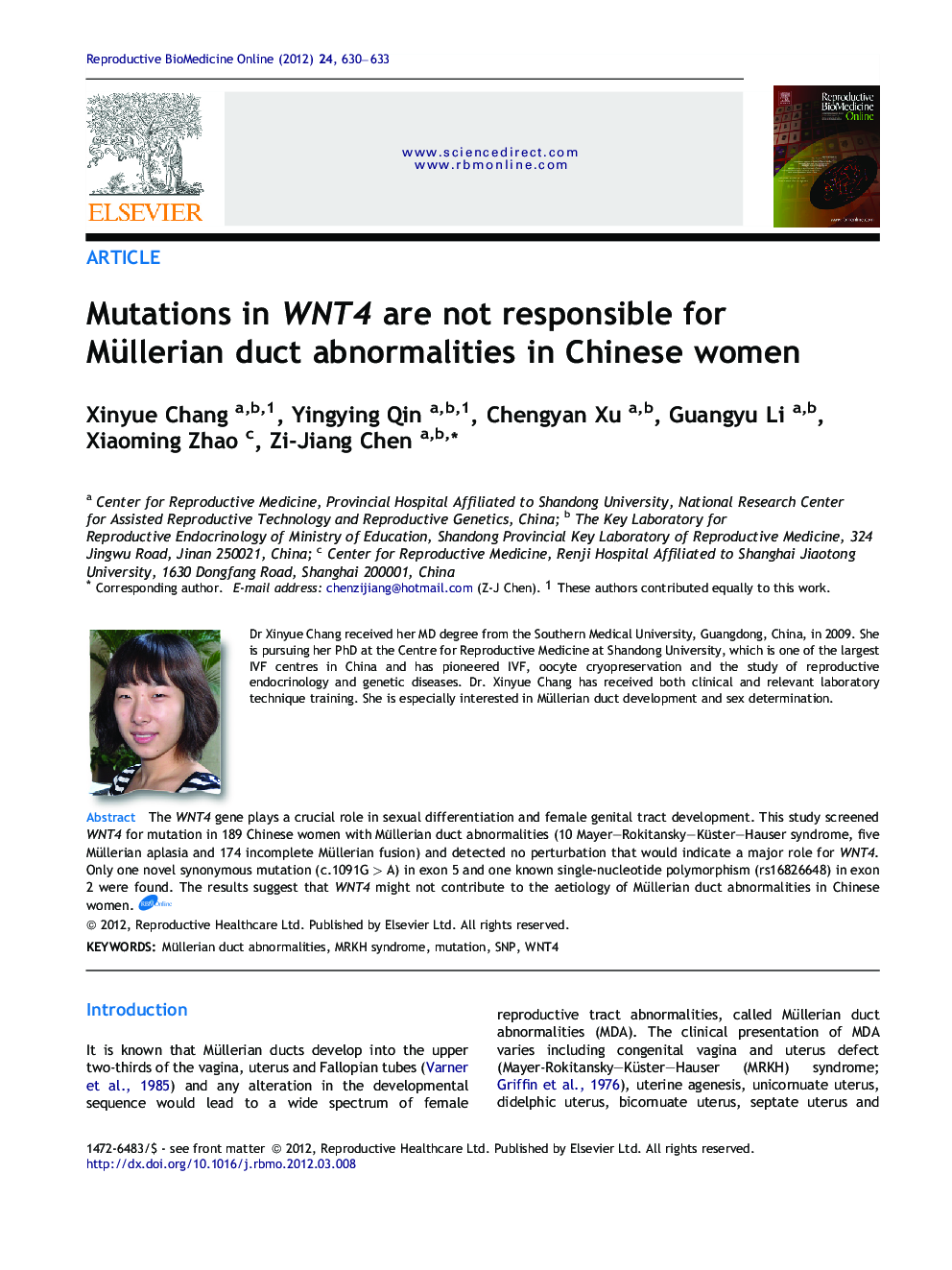| Article ID | Journal | Published Year | Pages | File Type |
|---|---|---|---|---|
| 3970823 | Reproductive BioMedicine Online | 2012 | 4 Pages |
The WNT4 gene plays a crucial role in sexual differentiation and female genital tract development. This study screened WNT4 for mutation in 189 Chinese women with Müllerian duct abnormalities (10 Mayer–Rokitansky–Küster–Hauser syndrome, five Müllerian aplasia and 174 incomplete Müllerian fusion) and detected no perturbation that would indicate a major role for WNT4. Only one novel synonymous mutation (c.1091G > A) in exon 5 and one known single-nucleotide polymorphism (rs16826648) in exon 2 were found. The results suggest that WNT4 might not contribute to the aetiology of Müllerian duct abnormalities in Chinese women.A genetic factor is considered to be one of the major causes for Müllerian duct abnormalities (MDA), and previous studies have showed that the WNT4 gene plays a crucial role in mammalian uterus development. We conducted a large cohort of well-characterized patients with MDA and screened variants of WNT4, as far as is known for the first time, but no causative mutations in the coding region of WNT4 were detected except for one known single-nucleotide polymorphism (rs16826648) and a novel synonymous mutation (c.1091G > A).
